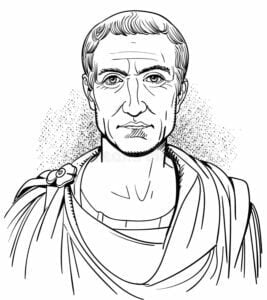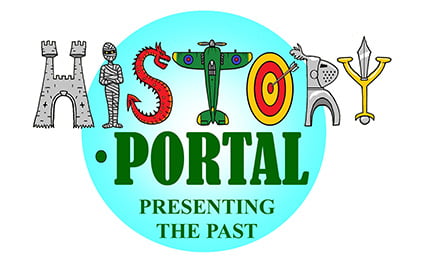
Julius Caesar was a dictator, and that is why he was assassinated by a group of senators on the Ides of March of 44 BC at a meeting of the Senate at the Curia of Pompey of the Theatre of Pompey in Rome.
They obviously didn’t like him as 60 senators were involved as they all wanted to make certain not only that he was dead, but that he stayed dead, so they stabbed him 23 times!
Basically, the problem was that over the years Caesar had kept increasing his power, the senators wanted to reduce his and his future successor’s power. You see during his reign he moved Rome from a Republic to an Empire, which he did this by increasing his power through a series political reforms, with each one increasing his power.
Unfortunately, it didn’t work!
The ramifications of the assassination led to the Liberators’ civil war and ultimately to the Principate period of the Roman Empire, where they ended up with more similar dictators as Emporer.
About Julius Ceaser
He changed Rome from a republic to an empire, which he did by grabbing power through a series of determined political reforms.
Of course he was a famous soldier, but I think he went down in history due to his steamy love affair with Cleopatra.
Personality and reputation of Julius Caesar
- Caesar was not lovable.
- His generosity to defeated opponents, magnanimous though it was, did not win their affection.
- He won his soldiers’ devotion by the victories that he brought them.
Yet, though not lovable, Caesar was and is attractive, indeed fascinating.
His political achievements showed his genius, in several different ways. His administration and general ship was brilliant allowing him to use his skills at networking that allowed him to persuade many to give him the support he required to, basically, become a dictator.
There was a further area where he went way beyond those of his political ambition, his writings. Most of which were lost in fact today we can only see his accounts of the Gallic War and the civil war survive. Naturally, Caesar was a brilliant public speaker.
It was these writings that showed his genius as even though he wrote them as propaganda they had enormous literary merit.
Of course, he is probably better known for his love affair with Cleopatra. In fact he put his position at risk by staying with her in Alexandria. Then in 46BC he invited her, and she accepted, to come to Rome. They say by getting her to visit him in Rome, he flouted public feeling and they say that this is one of the reasons behind the conspiracy that ended up with his death.
A very interesting and at the same time a disappointing man.
Isn’t history fun?
10 questions to discuss:
- How did the vast Roman road network influence trade, communication, and military expansion?
- Why were togas reserved for free-born men? What did other clothing choices signify in Roman society?
- What health risks or practical challenges might hair dye made from goat fat and beech wood ashes have posed?
- What factors led to the development of the first shopping mall in Rome? How did it compare to modern shopping experiences?
- Besides public entertainment, did the Colosseum serve any other political or social functions?
- Was the Roman army’s remarkable marching ability due solely to physical fitness or were there any unique training methods or technologies involved?
- How did the aqueduct system impact sanitation and public health in Roman cities?
- Were there any ethical or environmental concerns surrounding the consumption of exotic foods by wealthy Romans?
- How did social class and gender roles influence dietary habits and mealtime customs in Ancient Rome?
- Beyond the Colosseum, what other architectural and engineering feats of the Romans showcase their advanced technology and resourcefulness?
These questions are to encourage deeper exploration of various aspects of Roman life mentioned in the blog, prompting further research and critical thinking.
To learn more about him go to:
© Tony Dalton

